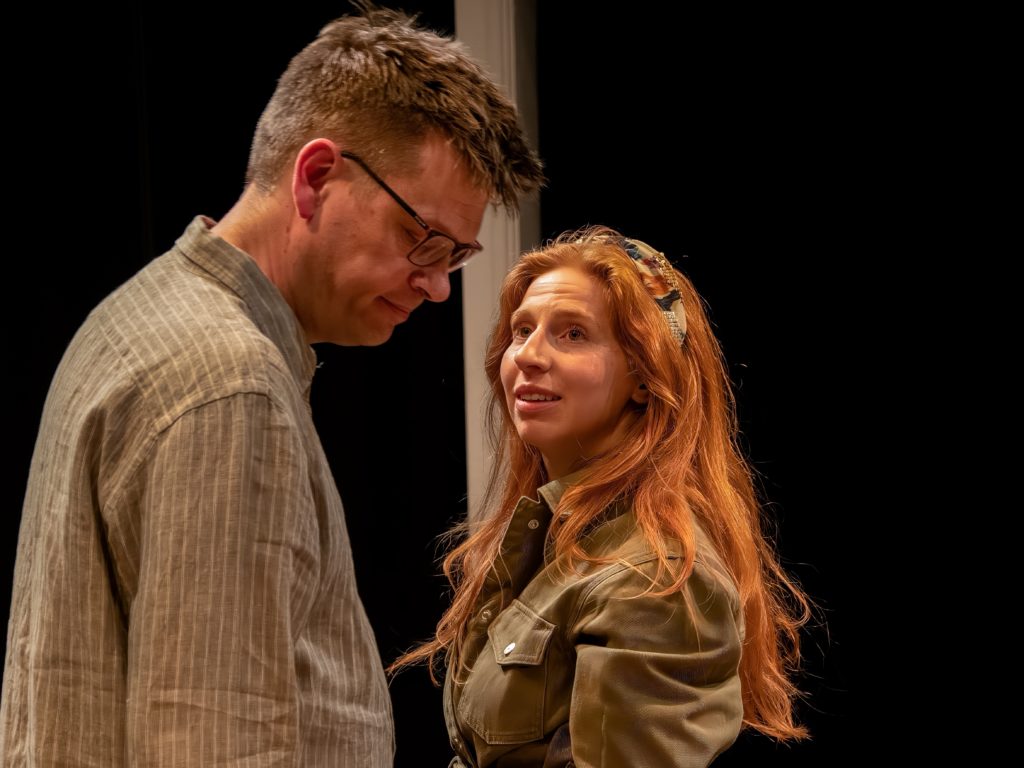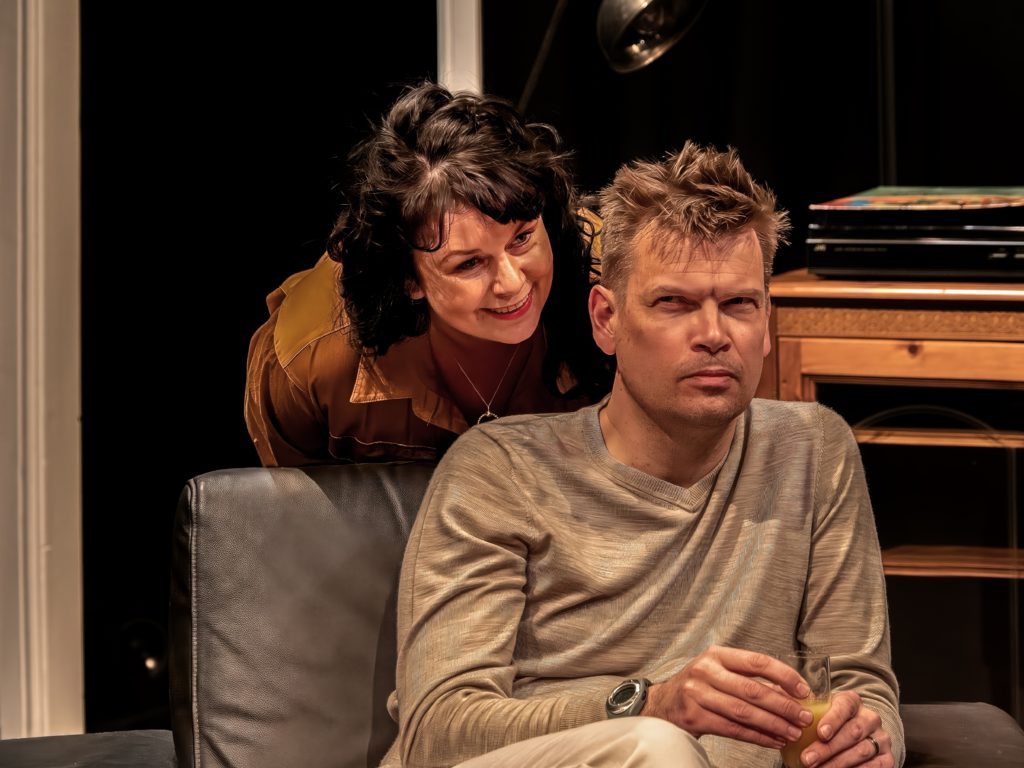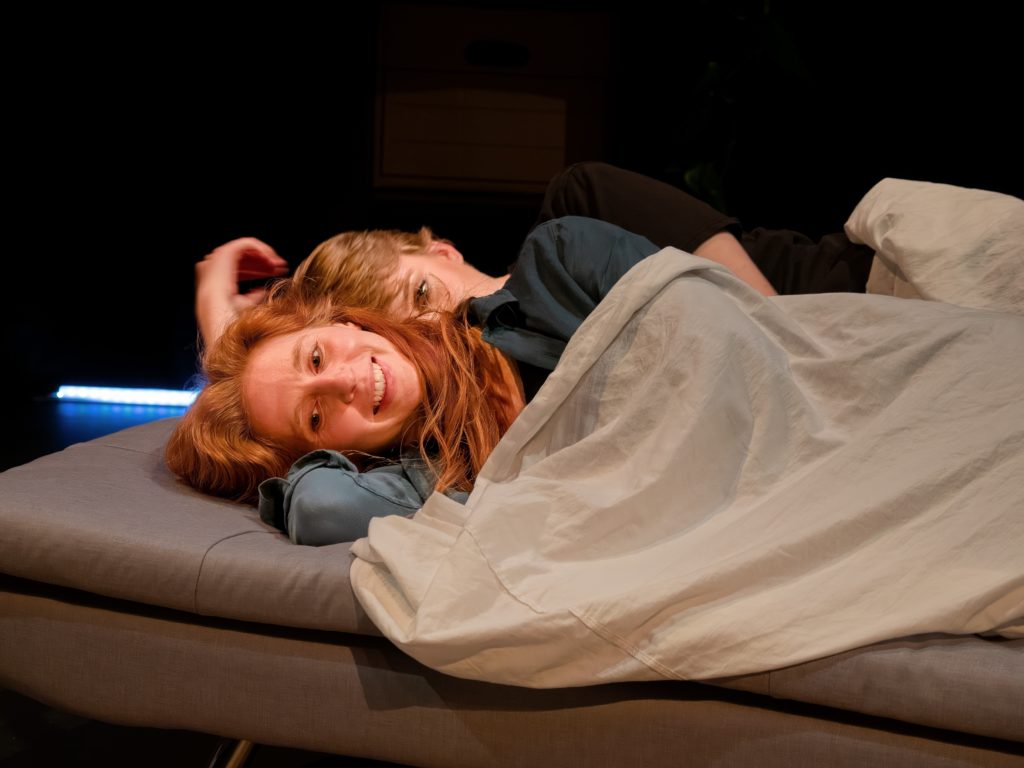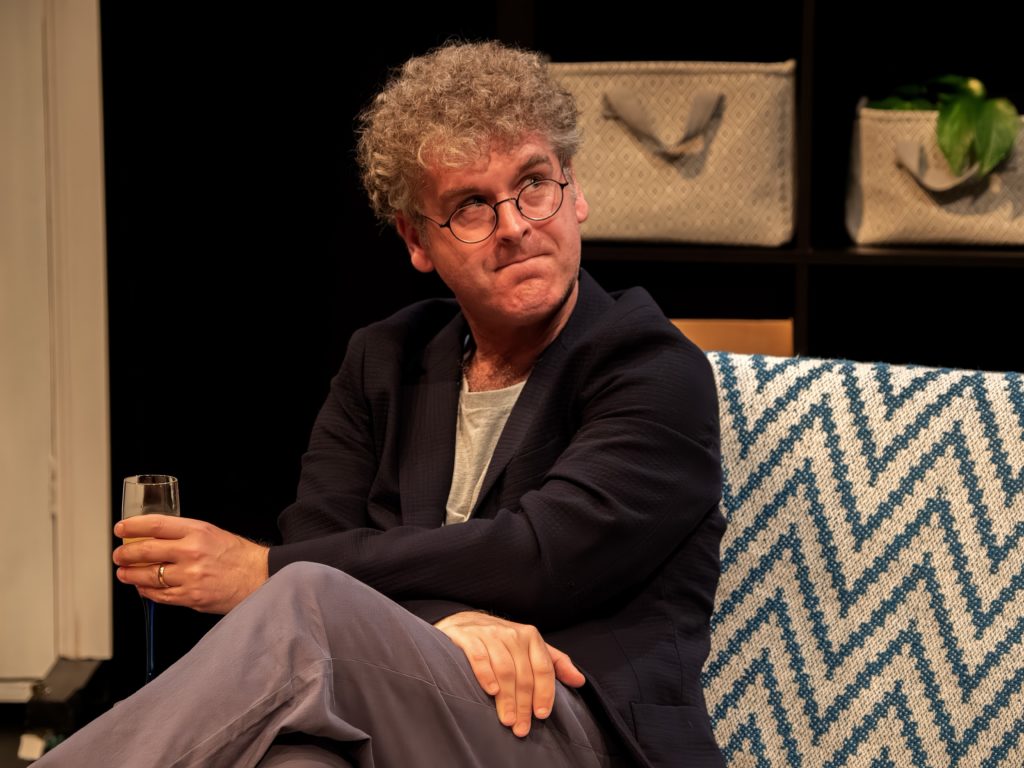
IS a play ever the real thing or just playing? What is love? What is art? What is truth? What is artifice? Can Tom Stoppard write good roles for women? Can you even trust this review? So many questions, and none of them will be answered conclusively.
He may be considered one of the greatest, smartest of British playwrights, knighted for his clever, clever dramas with their iridescent, intellectual language and adroit structures. But Tom Stoppard is not British by birth and nor is it his original name.
He was born Tomás Straüssler in Zlín, Czechoslovakia, and was raised in Singapore and India, taking the name Stoppard from his stepfather before moving to England in the post-war aftermath. He quit school (Pocklington School, by the way), becoming a journalist…and you know what they say about journalists and their relationship with the truth.
Written in 1982, The Real Thing revels in confusion, confusion that becomes even greater at the finale, or does it? Trust me, it certainly considers the nature of honesty in a play full of dishonesty and infidelity, where you may well not be able to tell when it is being a play within a play or a play being re-written within the play within the play or just a play.

Stoppard’s protagonist is a playwright, Henry (Alan Park, performing on a Theatre Royal stage for the first time since playing Jack in Pilot Theatre’s Lord Of The Flies 19 years ago).
He is married to Charlotte (Victoria Delaney), an actress, who is playing an actress, also called Charlotte as it happens, opposite Max (Mike Hickman) in Henry’s new play. Charlotte reckons he never writes her a decent role (an in-joke from Stoppard about his own writing).
Max in the play within a play is being played by an actor also called Max (Hickman), who is married to an actress, Annie (Alice May Melton).
Soon Henry and Annie are shacking up; dischuffed Charlotte and free-spirited daughter Debbie (Hannah Waring) moving on. Into the story come Billie (Rebecca Harrison), a lesbian young actress with a thing for Annie, and Brodie (Livy Potter), a troubled young writer whose frank and frankly badly written play is taken up by Annie. At least, I think that is what you are watching.

For sure, two years pass between Act and Act II, because the programme note says so, but Oxford School of Theatre graduate, professional actor and former Theatre Royal youth theatre fledgling Jacob Ward revels in the deliberate complexities in his first full-length production as director.
Betwixt scenes, actors move three door frames into different configurations – on Richard Hampton’s open-plan set design – that may or may not signify what is real and what isn’t.
A multitude of doors traditionally denotes we are in the presence of a theatrical farce, but here it is more a case of moving the goalposts or rearranging the deckchairs on the Titanic as the grip on reality sinks.
Park’s playwright Henry has the best lines (of course he does!), and what he says carries the greatest weight as effectively Stoppard’s voice on stage in this heavily autobiographical drama.

What is reality, what is merely appearance, applies to the relationships within the play, where fronts keep being put up and lies told.
Ironically, such is the language he uses, Stoppard’s characters are often not wholly believable, being conduits for his own cleverness or point-making, but the greater truth here is a writer’s struggle to express love in his writing: the gap between Henry’s feelings for Annie and putting them on the page.
Amid the obfuscation of a multi-storey of levels on stage, Stoppard’s grasp of the complications of love is the one real thing in this Tony Award-winning romantic comedy that is more romantic in spirit than action.
Whatever the truth within, Ward’s cast is the real deal, Park a powerhouse of opinion and conviction, Melton full of intrigue and resolve, mysterious and elusive too; Delaney delightfully forthright; the rest wholly committed to spinning plates ever faster.
York Settlement Community Players present Tom Stoppard’s The Real Thing, York Theatre Royal Studio, 7.30pm nightly until Saturday, plus 2.30pm Saturday matinee. Box office
